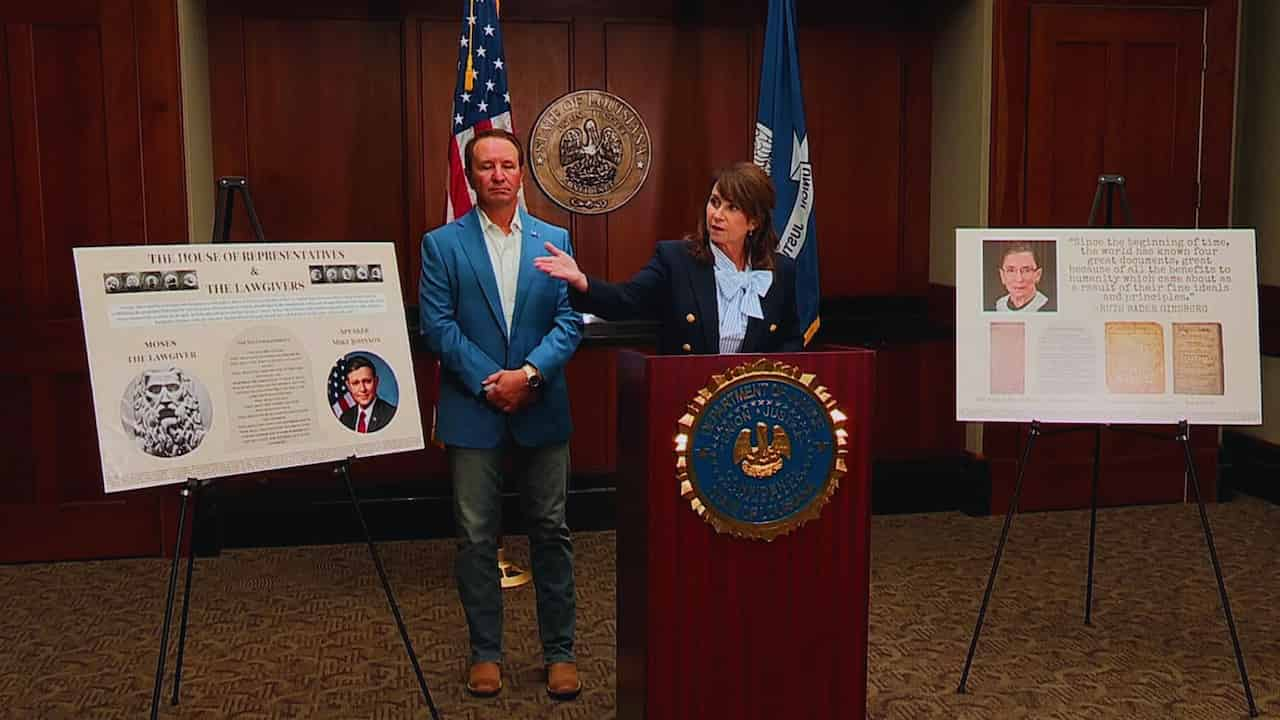Breaking Constitutional Grounds: Federal Judge Halts Louisiana’s Ten Commandments Mandate
U.S. District Judge John W. deGravelles has temporarily blocked Louisiana’s controversial law requiring Ten Commandments displays in public school classrooms, in a landmark ruling that has rippled through the intersection of education and religious freedom.
The decision, announced on Tuesday, November 12, 2024, marks a significant victory for civil rights advocates and highlights ongoing debates about the separation of church and state.
The Law and its Requirements
The blocked legislation, known as H.B. 71, would have mandated every public school classroom in Louisiana—from kindergarten through university—to display the Ten Commandments on poster-sized prints. The law specified that these displays could not be subtle additions.
- The dimensions should not be less than 11 by 14 inches.
- Feature “large, easily readable font”
- Make the Commandments the “central focus.”
- Include a three-paragraph statement about their historical significance in American education.
The Legal Challenge
Nine families, representing a diverse religious spectrum including Jewish, Presbyterian, Unitarian Universalist, and atheist backgrounds, stepped forward to challenge the law. The American Civil Liberties Union (ACLU) and other civil rights groups backed their lawsuit, arguing that the mandate violated First Amendment rights.
Rev. Darcy Roake, one of the plaintiffs, captured the heart of their argument: “We expect our children to receive their secular education in public school and their religious education at home and within our faith communities, not from government officials.”
The Judge’s Ruling
Judge deGravelles’ decision was clear and pointed. He found the law “coercive to students” and noted they would have no practical way to avoid viewing the Commandments in their daily educational environment. The ruling emphasized that while the state might have ways to teach about the Ten Commandments, this particular approach crossed constitutional boundaries.
Political Response and Future Implications
Louisiana Attorney General Liz Murrill wasted no time announcing plans to appeal, stating, “This decision only binds five of Louisiana’s many school boards. This is far from over.” The affected districts include:
- East Baton Rouge Parish
- Livingston Parish
- St. Tammany Parish
- Orleans Parish
- Vernon Parish School Board
Historical context and broader significance
This isn’t the first time such legislation has faced legal scrutiny. In 1980, the Supreme Court struck down a similar Kentucky law, citing First Amendment violations. However, the current political and legal landscape adds new weight to this case.
Alanah Odoms, executive director of the ACLU of Louisiana, emphasized the ruling’s timing: “With so many aspects of democracy in peril, it feels really reassuring and affirming that the Federal Court really articulated a very clear and strong First Amendment right.”
Looking Ahead
Legal experts anticipate this case could eventually reach the Supreme Court, potentially setting new precedents for religious expression in public education. The outcome could significantly impact how future generations experience the relationship between religious heritage and public education in America.
The temporary block of this law serves as a reminder of the delicate balance between honoring religious traditions and maintaining constitutional principles in public education.
As this legal battle continues to unfold, it will likely spark broader discussions about religious freedom, educational policy, and the role of government in matters of faith.
